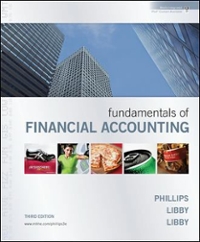Assume for each of the following independent cases that the annual accounting period ends on December 31,2010
Question:
Assume for each of the following independent cases that the annual accounting period ends on December 31,2010 , and that the total of all revenue accounts was \(\$ 150,000\) and the total of all expense accounts was \(\$ 130,000\).
Case A: Assume that the company is a sole proprietorship owned by Proprietor A. Prior to the closing entries, the Capital account reflected a credit balance of \(\$ 50,000\) and the Drawings account showed a balance of \(\$ 8,000\).
Case B: Assume that the company is a partnership owned by Partner A and Partner B. Prior to the closing entries, the owners' equity accounts reflected the following balances: A, Capital, \(\$ 40,000 ;\) B, Capital, \(\$ 38,000 ;\) A, Drawings, \(\$ 5,000\); and B, Drawings, \(\$ 9,000\). Profits and losses are divided equally.
Case C: Assume that the company is a corporation. Prior to the closing entries, the stockholders' equity accounts showed the following: Capital Stock, par \(\$ 10\), authorized 30,000 shares, outstanding 15,000 shares; Additional Paid-In Capital, \$5,000; Retained Earnings, \(\$ 65,000\).
Required:
1. Give all the closing entries required at December 31, 2010, for each of the separate cases.
2. Show how the equity section of the balance sheet would appear at December 31, 2010, for each case. Show computations.
Step by Step Answer:

Fundamentals Of Financial Accounting
ISBN: 9780073527109
3rd Edition
Authors: Fred Phillips, Robert Libby, Patricia A Libby





